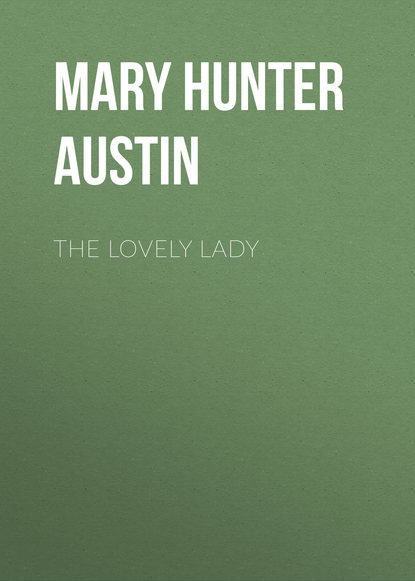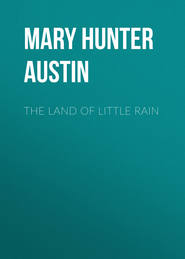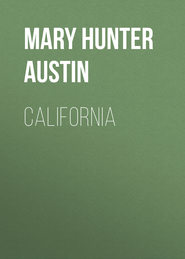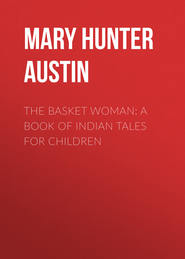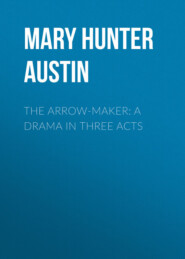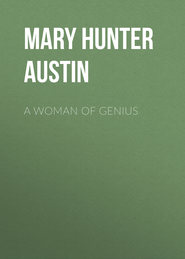По всем вопросам обращайтесь на: info@litportal.ru
(©) 2003-2024.
✖
The Lovely Lady
Настройки чтения
Размер шрифта
Высота строк
Поля
The city appeared quite habituated to this state of affairs; hordes of them came and went unconfronted between banked windows of warmth and loveliness, past doors from which light and music overflowed into the dim street in splashes of colour and sound, where people equally under the prohibition lapped them up hungrily like dogs at puddles. Sometimes in the street cars or subways he brushed against fair girls from whom the delicate aroma of personality was like a waft out of that country of which his preferences and appreciations acknowledged him a native, but no smallest flutter of kinship ever put forth from them to Peter. The place was crammed full of everything that anybody could want and nobody could get at it, at least not Peter, nor anybody he knew at Siegel Brothers. And at the lodging house they seemed never to have heard of the undiminished heaps of splendour that lay piled behind plate glass and polished counters. It was extraordinary, incredible, that he wasn't to have the least of them.
As the winter closed in on him, the restrictions of daily living rose so thick upon him that they began to prevent him from his dreams. He could no longer get through them to the House with the Shining Walls. Often as he lay in his bed trying to believe he was warm enough, he would set off for it down the lanes of blinding city light through which the scream of the trolley pursued him, only to see it glimmer palely on him through impenetrable plate glass, or defended from him by huge trespass signs that appeared to have some relation to the fact that he was not yet so rich as he expected to be. Times when he would wake out of his sleep, it would be to a strange sense of severances and loss, and though he did not know exactly what ailed him, it was the loss of all his dreams. After a while the whole city seemed to ache with that loss. He would lie in his narrow bed and think that if he did not see his mother and Bloombury again he would probably die of it.
Then along in the beginning of April somebody saw him. It was in the dusk between supper and bed time, walking on the viaduct where he had the park below him. There was a wash of blue still in the sky and a thin blade of a moon tinging it with citron; here and there the light glittered on the trickle of sap on the chafed boughs. It was just here that he met her. She was about his own age, and she was walking oddly, as though unconscious of the city all about her, with short picked steps, and her hat with the tilt to it of a girl who knows herself admired. She had a rose at her breast which she straightened now and then, or smoothed a fold of her dress and hummed as she walked. Her cheeks were bright even in the dusk, and some strange, quick fear kept pace with her glancing. Peter was walking heavily himself, as the young do when the dreams have gone out of them, and as they passed in the light of the arc that danced delicately to the wandering air, the girl's look skimmed him like a swallow. She must have turned just behind him, for in a moment she drifted past his shoulder.
"Hello!" she said.
"Hello!" said Peter, but, in the moment it had taken to drag that up from under his astonishment, she had passed him; her laugh as she went brushed the tip of his youth like a swallow's wing. It remained with him as a little, far spark; it seemed as if a dream was about to spin itself out from it. He went around that way several times on his evening walks in hopes that he might meet her again.
As though the spark had lightened a little of the blank unrecognition with which the city met him, he was seen that day and in no unfriendly aspect by "our Mr. Croker" of Siegel Brothers. The running gear of a great concern like the Household Emporium pressed, in the days of Peter's apprenticeship, unequally at times on its employees, and the galled spot of the canned goods department was Blinders the bundle boy. His other name was Horace and he was chiefly remarkable for pimples which he seemed to think interesting, and for a state of active resentment against anybody who gave him anything to do. The world for Horace was a dark jungle full of grouches and pulls and privilege and devious guile.
That the propensity which Peter had developed for inquiring every half hour or so if he hadn't got that done yet, could be nothing else but a cabal directed against Blinders' four dollars and a half a week, he was convinced. In all the time that he could spare from his pimples, Horace rehearsed a martyr's air designed to convey to Mr. Croker that though he would suffer in silence he was none the less suffering. It being precisely Mr. Croker's business to rap out grouches as an expert mechanician taps defective cogs, it happened the day after Peter's meeting with the girl that the worst hopes of Horace were realized.
"Aw, they're always a pickin' on me, Mr. Croker, that's what they are, Mr. Croker," Horace defended himself, preparing to snivel if the occasion seemed to demand it, by taking out his gum and sticking it on the inside of his sleeve. "I can't handle 'em no faster, Mr. Croker."
"Not the way you go at it," Peter assured him. Anybody could have told by the way he included Mr. Croker in his cheerfulness that there was something between them. "You turn 'em over too many times and you use too much paper and too much string." Suddenly Peter reddened with embarrassment. "Not that that makes any difference to a big firm like this," he apologized, "but in a small place every little counts." He turned the package deftly and began to illustrate his method. "When you're tying up calico with one hand and taking in eggs and butter with the other and telling three people the price of things at the same time," he explained, "you have to notice things like this."
"I see," said Mr. Croker. "You try it, Blinders."
"Aw, what's the matter with the way I was doin' it?" wailed Horace.
"If you don't feel quite up to it–" Mr. Croker hinted. Horace did, he wrapped with alacrity and Peter showed him how to hold the string.
"You come along with me, Weatheral," Mr. Croker commanded. Horace took his gum out of his cuff and made dark prognostication as to what was probably to be done to Peter.
What Peter thought was that he should probably become very unpopular with his fellow clerks. Croker took him across to dry goods, where girls were tying bundles in little cages over the sales ladies' heads, and had him repeat the method of handling string. Except that he thought he should get to like Mr. Croker, the incident made no particular impression on Peter—so dulled were all his senses for want of dreams,—and passed wholly out of mind.
It was two or three days after that he saw the girl again, nearer the end of the viaduct, where four or five streets poured light and confusion into Venable Square. She was going on ahead, hurrying and pretending not to hurry to overtake a man to whom she wished to speak. She was quite close to him, she was speaking, and suddenly he gave a little outward jerk with his elbow which caught hers unexpectedly and whirled her back against the parapet. The little purse she was carrying fell from her hand. The man gave a quick laugh over his shoulder and ploughed his way across the street.
"The skunk!" Peter's list of expletives was not extensive. He picked up the flat little purse and handed it back to her. "Shall I go after him? Did you know him?"
The girl was holding on to the parapet with a little choky laugh. "Oh, yes, I know that kind. No, I don't want him!"
"He ought to have a good thrashing," Peter was convinced. The girl looked up at him with a sudden curiosity.
"You're from the country, ain't you? I thought so the other night. I can always tell."
"I guess you're from the country yourself," Peter hazarded. She was prettier even than he had thought. Her glance had left his, however, and was roving up and down the hurrying crowd as though testing it for some plunge she was about to make.
"If you wanted me to see you home–" Peter hinted; he did not know quite what was expected of him. She answered with a little sharp noise which ended in a cough.
"I guess you're real kind," she admitted, "but I ain't goin' home just yet. I got a date." She moved off then, and since it was in the direction he was going, there was nothing for Peter to do but move with her, on the other side of the wide pavement. At the turn she drifted back to his side again; it seemed to Peter there was amusement in her tone.
"You got anything to do Saturday about this time?" Peter hadn't. "Well, I'll be here—savvy?" But before he could make her any assurance she laughed again and slipped into the crowd.
Peter knew a great many facts about life. There were human failings even in Bloombury, and what Peter didn't know about the city had been largely made up to him by the choice conversation of J. Wilkinson Cohn, in staples, at the next counter to him. Anybody who listened long enough to J. Wilkinson's personal reminiscences would have found himself fully instructed for every possible contingency likely to arise between a gentleman of undoubted attractions and the ladies, but there are forces in youth that are stronger than experience. It is a very old, old way of the world for young things to walk abroad in the spring and meet one another.
Peter strolled along the viaduct Saturday and felt his youth beat in him pleasantly when he saw her come. She had on a different hat, and the earlier hour showed him the shining of her eyes above the raddled cheeks.
"We could go down in the park a piece," he suggested as they turned in together along the parapet. There was a delicate damp smell coming up from it on the night, like the Bloombury lanes.
"You're regular country, aren't you?" There was an accent of impatience in her tone, "I haven't had my supper yet."
"Well, what do you say to a piece of roast beef and a cup of coffee?" Peter had planned this magnificence as he came along fingering his pay envelope. He knew just the place, he told her. The feeling of his proper male ascendency as he drew her through the crowd was a tonic to him; the man tossing pancakes in the window where he hesitated looking for the ladies' entrance seemed quite to enjoy doing it, as though he had known all along there was to be company.
"Oh, I don't care for any of these places." Peter felt her pull at his elbow. "I'll show you." They went along then, brushing lightly shoulder to shoulder until they came to one of those revolving doors from which gusts of music issued. There was a girl standing up to sing as they sat down and the whole air of the place was beyond even the retailed splendour of J. Wilkinson. The girl threw back her wraps and began to order freely. Peter, who had a glimpse of the card, stiffened.
"I—I guess I'm not so very hungry," he cautioned. She looked up from the menu sharply and her face softened; she made one or two deft changes in it.
"This is Dutch, you know," she threw out. "Oh, I know you invited me, but you didn't think I was one of the kind that let a strange gentleman pay for my dinner, did you?" Peter denied it, stricken with embarrassment. She seemed in the light, to take him in more completely.
"Say, would you have licked that fellow the other night, honest?"
"Well, if he was disrespectful to a lady–" Peter began.
"Oh, excuse me!" She turned her head aside for a moment in her long gloves. "You are country!" she said again, but it seemed not to displease her. "I don't care so much for her voice, do you?" She turned on the singer. They discussed the entertainment and the dinner. They were a long time about it. The orchestra played a waltz at last, and Ethel—she had told him to call her that—put her arms on the table and leaned across to him, and though Peter knew by this time that her cheeks were painted, he didn't somehow mind it.
"What's it like up in the country where you lived?" she wished to know.
"Hills mostly, little wooded ones, and high pastures, and the apple orchards going right up over them...."
"I know," she nodded. "I guess it's them I been smelling … or laylocks."
"Things coming up in the garden," Peter contributed: "peonies, and long rows of daffodils...." He did not realize it, but he had described to her no place that he had known but the way to the House. The girl cut him off.
"Don't!" she said sharply. "You know," she half apologized, "you kind of remind me of somebody … a boy I knew up country. It was him that got me here–" She made her little admission quietly, the horror of it long worn down to daily habit. "That first time I saw you, it seemed almost as if it was him … I ain't never blamed him—much. He didn't mean to be bad, but when the trouble came he couldn't help none.... I guess real help is about the hardest thing to find there is."
"I guess it is."
"Oh, well, we gotta make the best of it." She glanced at Peter with her head on one side as she twiddled her fingers across the cloth to the tune of the orchestra.
They went out at last and walked in the least frequented streets, and Peter held her hand; the warmth of it ran with a pleasant tingling in his veins. He seemed to have touched in her palm the point at which the city came alive to him. They walked and walked and yet it seemed that something lacked to bring the evening to a finish; it was incredible to Peter that after all his loneliness he should have to let her go.
"We could go up to my place," Ethel suggested. "It's up here." He hadn't suspected that she had been guiding him.
"I guess not to-night." Peter's blood was singing in his ears. In the dark of the unfrequented street he could feel her young body leaning toward his.
"Say, you know I ain't after the money the way some girls are; I like you … honest–"
"I guess I'd better go home." But they went on up the side street a little farther. "Good-bye," he said, but he did not let her go.
She shook her hand free at last.
"Oh, well, of course, if you don't want to...." He felt her soft hands fumbling at his face; she drew him down to a kiss. Suddenly she sprang away, laughing. "Go, you silly!"
"Ethel!" he cried, but he lost her in the dark. He should have let her go at that; he knew he should. In spite of her paying half, his dinner had cost him more than two ordinary dinners … and besides.... He couldn't help, however, walking around by the viaduct for several evenings the next week, and at last he saw her. She was going by without speaking, but he got squarely in front of her.
"Ethel!"





